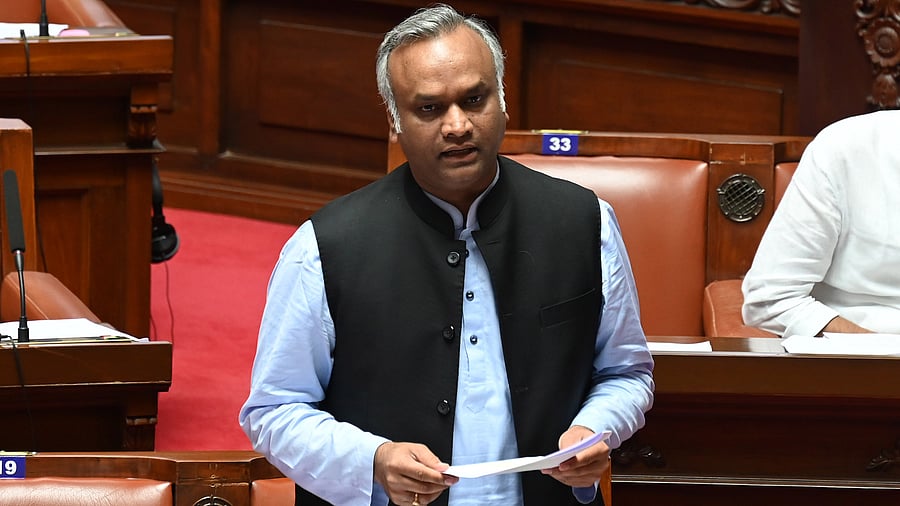
Priyank Kharge
Credit: PTI File Photo
Bengaluru: Fancy getting petrol delivered home? How about delving into cryptocurrency? Karnataka is set to try out disruptive innovations that may lead to policy changes, five years after a law was introduced for this purpose.
The Karnataka Innovation Authority (KIA), which is likely to be operationalised soon, will provide a regulatory sandbox to test ideas, mainly those currently do not have any policy recognition or framework.
IT/BT Minister Priyank Kharge said his department wants to launch operations of the KIA as early as next month.
"All policies across the world play catch-up to technology. No policy is tech-ready. We don't want to stifle innovation," Priyank told DH. "Any idea that's not illegal and falls within legal parametres, but doesn’t have a policy for it, will be put through a sandbox environment."
Enacted under the previous BJP government in 2020, the Karnataka Innovation Authority was positioned as India’s first pan-sector initiative for private companies to test ideas unregulated under law. "In fact, this was my idea during my first term as IT/BT minister. The previous government brought in a law, but did not frame rules," Priyank said.
The minister chaired a meeting on the KIA recently. The KIA will invite and assess applications that require the creation of sandboxes. "Once testing begins, there will be close monitoring for compliance and outcomes. Based on the results, successful trials will follow suitable exit strategies and can potentially lead to the KIA making policy recommendations to the government," the minister explained, adding that KIA would have its own technical secretariat comprising experts.
Karnataka has had its share of regulatory tussle with disruptive technology. In the transport sector, for instance, carpooling, shuttle services and bike taxis are restricted under the motor vehicles rules.
"During my first term, one company said it wanted to door-deliver petrol. However, we didn’t have rules for it. We couldn’t even fund the company under our Elevate programme. With a sandbox, we can see what can be done," Priyank said. "Similarly, we have ideas such as gene editing, cryptocurrency and generative artificial intelligence. We don’t know what’s ethical and what’s not. We don’t know the use cases."
It is widely believed that the first regulatory sandbox was the Financial Control Authority (UK) established in 2015 for the fintech space. The Reserve Bank of India, SEBI and Maharashtra government also set up fintech sandboxes.
Under draft rules published by the state government in 2020, startups and big businesses had to pay Rs 5 lakh to Rs 40 lakh to test disruptive technologies in a controlled environment.
